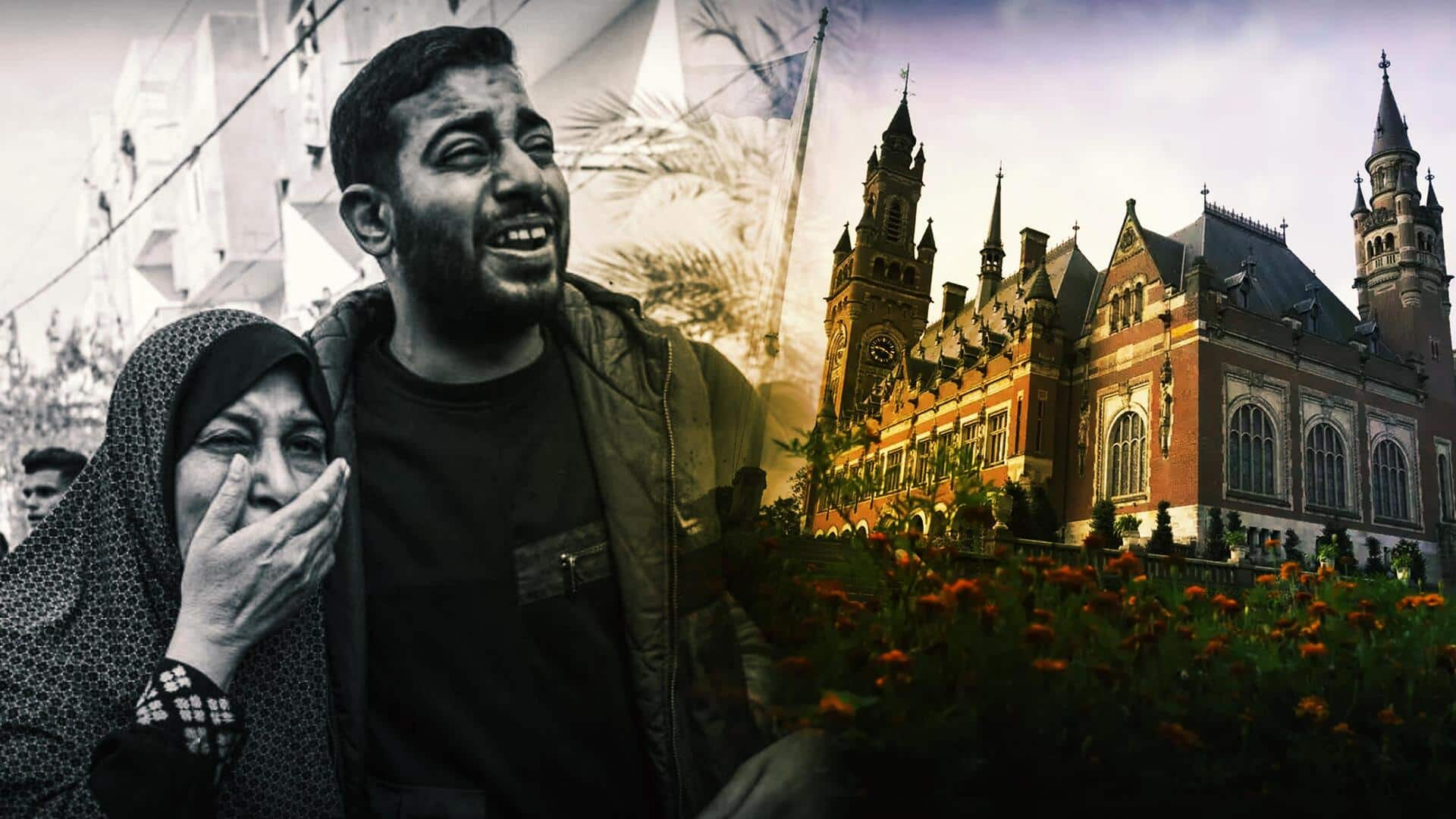
What is the genocide case against Israel at UN court
What's the story
South Africa has taken Israel to the International Court of Justice (ICJ), accusing it of genocide in the Gaza war and demanding an immediate halt to its military actions. The ICJ, also known as the World Court, is the United Nations' top legal institution, created in 1945 to resolve disputes between countries. Both South Africa and Israel have signed the 1948 Genocide Convention, which grants the ICJ authority to decide on disputes related to the treaty.
Context
Why does this story matter?
The conflict in the Hamas-controlled Gaza Strip started on October 7, 2023, after the terror group killed almost 1,200 Israelis and took around 240 hostages during its attacks on Israel. The Jewish nation responded with a multi-pronged military operation in the strip, killing over 23,200 Palestinians so far. The ongoing war has also triggered a humanitarian crisis, with UN humanitarian chief Martin Griffiths saying that Gaza is becoming "uninhabitable" amid Israel's ongoing assault.
Details
ICJ panel expands for Israel case
The ICJ, which is composed of 15 judges from different countries, handles border disputes and cases involving states accused of violating UN treaty obligations. In this case, the panel will be expanded to include two more judges, one from South Africa and one from Israel. Although the case centers on occupied Palestinian territories, Palestinians lack an official role in the proceedings due to their non-membership status in the UN.
Details
The basis of South Africa's case
In an 84-page document, South Africa alleges that Israel is committing genocide against Palestinians in Gaza. The accusations include killings, inflicting severe mental and physical harm, and creating living conditions designed to cause their physical destruction. The document points to Israel's failure to supply essential food, water, medicine, fuel, shelter, and other humanitarian aid during the conflict. It also emphasizes the ongoing bombing campaign that has displaced 1.9 million Palestinians and killed over 23,000 people, according to Gaza health officials.
What Next?
Israel's response to the accusations
Israeli President Isaac Herzog labeled the ICJ case "outrageous and absurd," asserting that Israel does its best to avoid civilian casualties in Gaza. Herzog stated, "We will be there at the International Court of Justice and will present proudly our case of using self-defense under our most inherent right under international humanitarian law." Israel also accused South Africa of cooperating with the Palestinian terrorist group.
Insights
When are the hearings?
The countries will have two hours each to submit their cases for or against emergency measures at hearings on January 11 and 12. The proceedings, devoid of witness testimonies and cross-examinations, will mainly involve legal arguments by state officials. The request for emergency measures is an initial step, acting as a restraining order while the court examines the case. The ICJ will not make a final determination on South Africa's genocide allegations until a merits hearing, likely years away.
Twitter Post
ICJ statement on the hearings
PRESS RELEASE: the #ICJ will hold public hearings on the request for the indication of provisional measures submitted by #SouthAfrica in the case #SouthAfrica v. #Israel on Thursday 11 and Friday 12 January 2024. Watch live on @UNWebTVhttps://t.co/kHMCQklbfQ pic.twitter.com/t8Pgf5T4Ly
— CIJ_ICJ (@CIJ_ICJ) January 3, 2024
Facts
Final ruling
If the court finds it has prima facie jurisdiction, the case will proceed at The Hague's Peace Palace, even if emergency measures are denied. Israel can then argue against the court's legal grounds and file a preliminary objection. If the objection is dismissed, the judges may review the case in subsequent public hearings. A considerable time gap—often several years—is common between the initial claim and the eventual hearing on the merits.
Details
India strongly condemns Israel-Hamas war at UNGA
On Tuesday, India strongly condemned the loss of lives in the ongoing Israel-Hamas war at the United Nations General Assembly (UNGA) meeting. While calling it an "alarming humanitarian crisis," India's permanent representative to the United Nations, Ruchira Kamboj, said the only way to a peaceful resolution is through "dialogue and diplomacy." She also reaffirmed India's commitment to combating terrorism, citing the October 7 terror attack by Hamas in Israel as the immediate cause of the conflict.
Details
Netanyahu's call to put 'everything' aside to defeat Hamas
Earlier, Israeli Prime Minister Benjamin Netanyahu called to put "everything" aside to focus on winning the war against the Palestinian terrorist group. "We are not giving Hamas immunity anywhere, and we are fighting to restore security to both the south and north," Netanyahu said in a video statement. "Until then and to do so, we must put everything to the side and continue jointly until we obtain complete victory," he added.